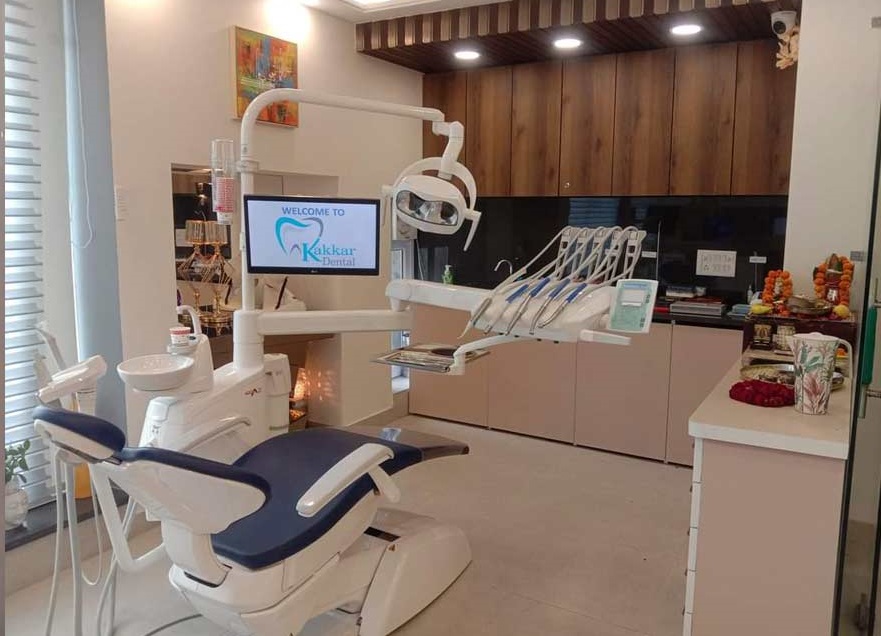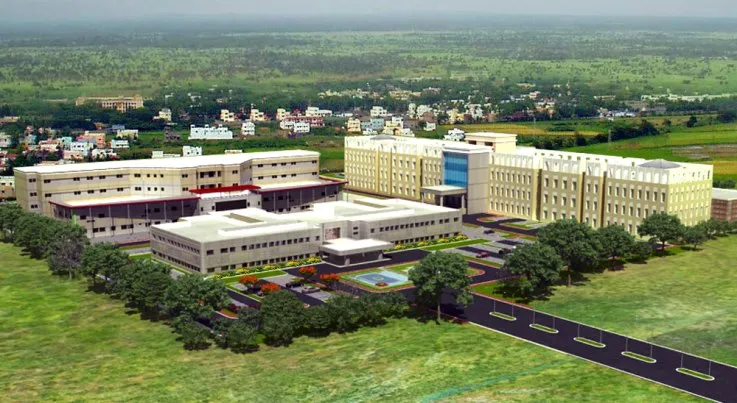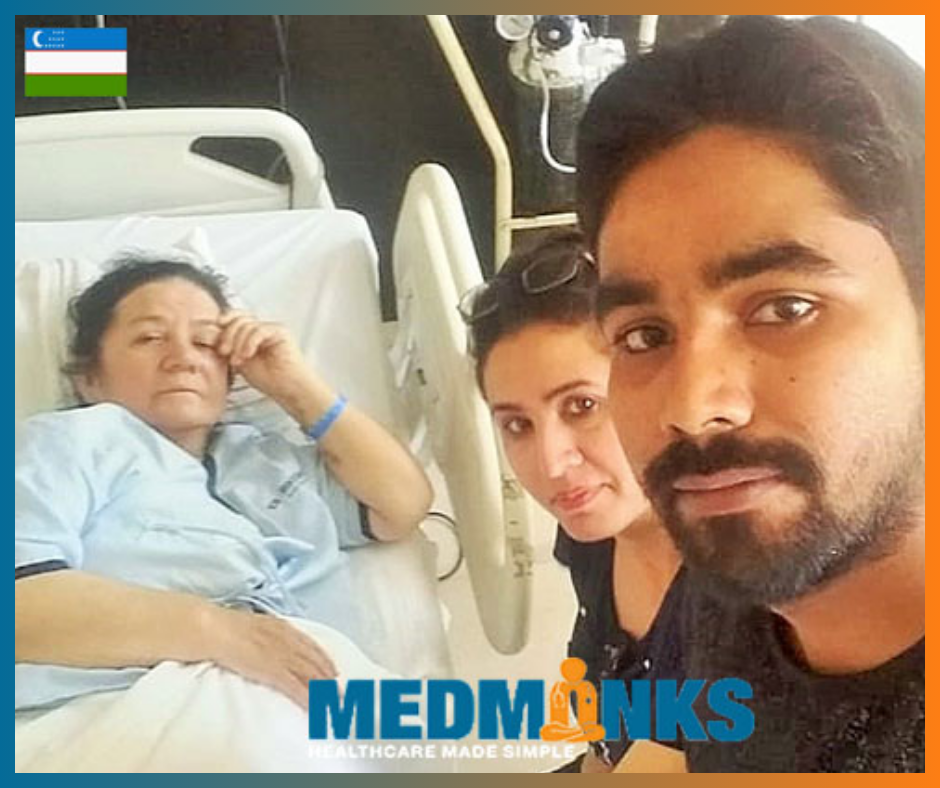Kakkar Dental, located in Shalimar Bagh, Delhi, is a prominent dental clinic known for its patient-focused approach, high-quality treatments, and experienced professional More..
Cosmodent India is conveniently located in the buzzing city of Gurugram, NCR complete with modern facilities and the latest dental technologies to facilitate a wholeso More..
Apollo Hospital, Greams Road in Chennai is the first hospital in south India to receive JCI (Joint Commission International) accreditation subsequently 4 times. The More..
Global Hospital is a sub-branch of Parkway Pantai Ltd. Doctors at Global Hospital perform 18000 operations every year First Hospital in western India to perf More..
Apollo Hospitals, Bannerghatta Road, Bangalore is amongst the top 10 best multi-specialty hospitals in India. The healthcare centre is spread across 2,12,000 square More..
Aster CMI Hospital is among the best hospitals in Bangalore. It is also amongst the fastest and largest growing hospitals, which delivers healthcare services for a More..
Gleneagles Global Hospital in Perumbakkam is amongst the best multi-specialty hospital in Chennai. The centre is spread over 21 acres of land. The team More..
Yashoda Hospital is one of the top 10 hospitals in Hyderabad. It is 500 bedded multi-speciality healthcare center. Yashoda Hospitals have three branches in Hyderab More..
Dr BalabhaiNanavati Hospital, or popularly known as Nanavati Super Speciality Hospital is amongst the top 10 multi-speciality Hospital in India. The hospital was in More..
The staff at Max Super Speciality Hospital, Shalimar Bagh, specialises in delivering healthcare services for neurosciences, cardiac sciences, minimal access bariatric More..

Don't know where to start?
- Speak to our in house doctor
- Get a response within 5 minutes
Description
National Health and Nutrition Examination Survey (U.S.) says about 92% of adults ageing from 18 to 60 face dental problems like tooth decay. Oral health techniques like brushing, rinsing and flossing regularly plays a huge role in keeping the dental ailments at bay.
FAQ
What are the various dental issues people face?
Some of the common issues people face include tooth decay, bleeding gums, bad breath and sensitive teeth. Most of the dental issues are often painless and hence go undetected until it escalates to later stages.
Problems also include various orthodontic issues that develop in people over the years. Ailments like malocclusion (misalignment of the teeth), missing teeth, deformed teeth or crowded teeth will require dental surgery other than maintaining a good oral hygiene and medication.
What is a tooth cavity?
A tooth cavity results from tooth decay over time and often causes moderate to a severe toothache. When left untreated, the decay intensifies and spreads deeper into the layer of the teeth through the enamel and dentin, and eventually reaches the root. Being the only part connected to nerves, it is the root that pains in a case of tooth cavity when the decay reaches it. Since the delay is painless in the earlier stages, patients don’t find out the tooth cavity in time; hence, by the time they feel pain and the decay has already reached the gums, a good portion of the tooth's layers have been damaged already.
How do you treat it?
An oral examination is enough to identify major tooth decay cases, but sometimes a dental x-ray is also used to look for minute cases of decay and the ones that aren’t easily visible. Once detected, a number of treatment options can be used depending on the severity of the decay.
A fluoride treatment is usually enough for very little decay in cases where it has been detected soon. Tooth fillings are often used to treat cavities. The decaying portion is drilled out of the tooth until there is no more decay left to spread and then the cavity is filled in with materials like gold, silver, or enamel-like resin. For more severe decay cases, the dentist may drill the decayed area and place a custom-made crown or cap above the tooth, replacing the natural crown. Other kinds of implants techniques like Subperiosteal implants could be used if there isn’t sufficient bone height for a regular implant.
What is a root canal?
When the decay has spread enough to damage the patient’s nerve endings, root canal is the solution to prevents any further infection. The tooth is drilled and the decayed nerve tissues and blood vessel tissues are removed. The root is then treated and fillings or a crown is used to keep the tooth safe.
What are sensitive teeth?
We often feel a sharp pain in our teeth or in a particular tooth when we eat or drink something hot or cold. Consuming food items with high acidic or sugary content also causes this pain. This is a common dental issue, and it is called tooth sensitivity or dentin sensitivity. It affects about half the world’s population at some point in their lives and can be recurring from time to time.
What is the cause of tooth sensitivity?
The inner layers of the tooth are covered by the topmost protective layer called the enamel. But the enamel is formed on only the parts of the tooth surface that are visible. The gums usually cover up the portions of the tooth beyond the enamel. When the gums recede naturally (sometimes, with age) or the patient suffers from periodontal disease, the gums go back and leaving the dentin exposed. Being close to the nerve endings, the dentin layer is sensitive to temperature variation, pH and external food; therefore causing the pain.
How do you treat them?
It is important to know that while sensitive teeth is a common issue, it can be prevented in the first place by maintaining proper dental hygiene. However, if you are consistently suffering from tooth sensitivity, consult a dentist know to determine if dentin exposure is the actual cause of your decay. For most cases in-clinic treatment is not required and treatment takes place at home while brushing your teeth. The dentist will suggest you products like a toothpaste that isn’t very harsh on the enamel or one that induces a little numbness to relieve the pain. The use of fluoride products like Desensitizing toothpaste helps and creams may also be suggested to rebuild layers of lost enamel. In severe cases, sensitivity is treated by applying fluoride varnish onto the affected teeth.
What are orthodontic issues?
Issues that exist since birth or are acquired or developed over an individual’s lifespan that leads to a misalignment, change in structure, or change in the number of teeth are called orthodontic problems. They also include misaligned jaws.
How do you rectify them?
Once diagnosed, orthodontic surgery is often used to treat cases of misaligned jaws, missing teeth, extra teeth, etc. Although the procedure is common, it comes with the risks of swelling and bleeding. The recovery period after an orthodontic surgery may take up to a couple of months and hence patients should plan ahead of time in case an absence from college or work is required.
How much does this cost?
Orthodontic surgery is known to be expensive because of the complicated processes and because some of the best hospitals for dental treatment will also require you to have multiple follow up visits. Crowning may cost you about 500$ and upwards for a single visit and root canals start with 1000$ in countries like the U.S. If the costs you incur are too high, you could always consider getting dental treatment in countries with lower medical costs, like India, Thailand and Turkey.
The affordable cost of dental treatment in India, for instance, attracts many patients every year. Procedures like a root canal and crowning start from 50$ and shouldn’t cost you more than 500$ for the complete treatment even in the best dental hospitals.
How do I locate the best hospitals for dental treatment?
Thankfully there are some factors that could help you in locating good dental treatment hospitals.
Accreditations: Accreditations the hospitals have, these accreditations are given by national and international organisations like NABH (National Accreditation Board for Hospitals and health care providers) after judging the competency of the hospitals.
You might also check what facilities and equipment the hospitals have, like Does it have an in-house X-ray lab and advanced operational apparatus?
Dental surgeons and their competency could also be a deciding factor in finalizing a hospital, the experience of the doctors and the certifications they have should be taken into consideration before zeroing down to a hospital.
We at MedMonks offer services to patients travelling from abroad who seek treatment in India. With a team of experts with years of experience, be it dental surgery in India or other ailments, MedMonks helps patients all the way from consultancy to treatment. Reach us to know more













